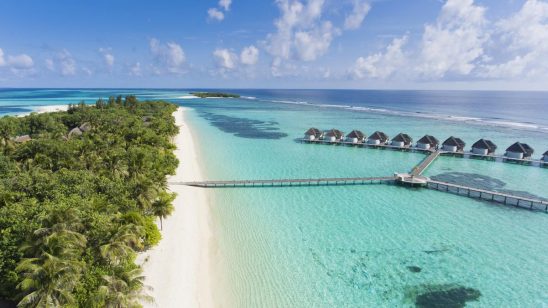
Intrepid Travel Takes Lead in Responsible Travel with Decarbonisation Efforts
As global societies finally start to adjust to a world that is quite different to that of yesterday, the aftermath of COVID-19 has also started to reveal a peculiar change in consumers across all spheres of the world’s industries. From fashion to food, as well as travel and tourism, all these sectors report a “changed” mindset in the consumer. A notable variance in their sentiment and behavior. Consumers are looking at what they purchase through an entirely new lens. There is an ethical and environmental revolution taking place. People are becoming more mindful of what they buy, where it’s sourced from, and the impact trail it leaves behind. Current studies on the matter determine that these changes we are witnessing in society will endure long after the crisis, and will permanently change the way we live, work and purchase goods and services alike. Having said that, are we ready as an industry to adjust our products and experiences to fully embrace this change?
“31% of global respondents have made reducing their environmental footprints a significantly higher priority than before, with over 12% making it their absolute top priority”
Reflecting on their latest COVID-19 recovery survey, Gus Gardner, the associate travel and tourism analysist at GlobalData revealed that a total of 31% of global respondents have made reducing their environmental footprints a significantly higher priority than before, with over 12% making it their absolute top priority. “This significant shift in consumer sentiment cannot be ignored”.

An Opportunity for Transformation
As we restart tourism activities across the globe, this could be a great opportunity for the world to embrace a more sustainable reboot of the travel industry, balancing the needs of the people and the planet in its entirety. With an uptick in demand for responsible travel, this gives businesses the perfect conditions to align their products in a manner that does not compromise their profitability, but on the contrary enhances it.
We can safely say that this is the second wave of a positive consumer shift we are seeing after the famed social movement we saw back in 2019, with the “Attenborough effect” driving it as the main catalyst. Although many travel companies are slow to pick up their momentum, Intrepid Traveler has solidified its position as a global leader in responsible travel, spearheading decarbonization through aligning their services and offerings to reduce the impact that its tours have on the environment. Intrepid plans to remove all flights under 90 minutes from its top 50 itineraries and have the means of transport switched with a viable land or rail alternative. By taking the new customer sentiment to heart, the company is well on its way to be positioned as an industry leader in responsible travel, and by doing so reinforcing the company’s ethos as a force for good at the heart of its operations.
Decarbonization requires a transformational shift in the way we operate and approach the subject of energy
In the case of the Maldives, where do we stand? What can we do to play our part to build back better, more resilient, and sustainable than before? With our given natural geography, giving up the sea planes and the short domestic flights might not be feasible. However, what about implementing offsetting measures? Harbour Air Seaplanes, a seaplane fleet in Canada conducts a carbon offsetting program where they calculate the emissions by examining fuel records, staff commutes, power consumption and paper use, and apply equivalent offset charges on the ticket prices. The funds generated from the sales are then deployed to environmental protection programs around the world. As an industry connected globally, our efforts need not be confined to local territory, but to any stakeholder, or any party that can make a difference. With the case of Harbour Air Seaplanes, one of their key points of success is the level of transparency they maintain with their carbon offsetting program. This keeps all stakeholders accountable and ensures there is trust between the clients as well as helps protecting the program’s overall integrity.

The Need for a Paradigm Shift
Decarbonization requires a transformational shift in the way we operate and approach the subject of energy. It cuts across production, sourcing, consumption and how we engage with all stakeholders across the entire value chain. From the transport sector to the hotels and resorts, it must be a combined effort to bring about a sustainable change to the entire system.
The change of overall consumer attitudes and the demand for action against climate change is certainly not going unnoticed. More and more are acknowledging the fact that the state of our future must be determined today. Now, it is clear that the word “sustainability” is not just merely a pleasant-sounding noun we can simply throw around as we like. Sustainability is a serious matter, and businesses and corporations alike must not only embrace it for the sake of the world we live in, but also to safeguard the new age consumer, and protect their long-term financial viability.






